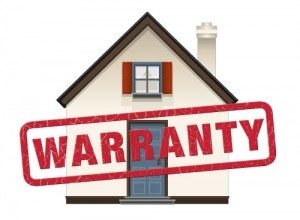Home Warranty vs. Home Insurance: What’s the Difference?
Updated:
Retirement Living takes an unbiased approach to our reviews. We may earn money when you click a partner link. Learn More

When something goes wrong with the biggest investment you’re likely to make — your home — how prepared are you for the expense of repairs? Both home insurance and a home warranty can protect your bank account when your home is damaged or things wear out and stop working. Home warranties and homeowner’s insurance cover different costs, so it’s important to know the difference between the two.
Know what these policies cover and why you might choose to buy one or the other, or both.
Great Reputation
American Home Shield
- High appliance replacement limits
- Available in 49 states
Home Warranty Plans
A home warranty is a service contract to repair or replace the components and appliances in your home that fail due to age or wear and tear. This includes your electrical, plumbing, kitchen appliances, washer and dryer, the air conditioner, the furnace, the hot water heater, and some warranties cover a spa or pool. Home warranties protect you from the cost of repairing the systems and appliances sold with the home. Read the contract carefully to know the various ways the home warranty company could deny coverage for pre-existing issues due to improper installation, maintenance, or use. These policies have maximum payout limits, so be sure you understand what your policy covers before you pay for it.

There are two types of home warranties available:
- Home warranty policies for existing homes that are a part of the sale of the home and cover repairs for a year. Recommended for older homes.
- Homebuilder warranties on new homes are usually included in the home’s price. These warranties generally cover structural defects for 10 years, one year on paint, drywall and stucco, two years on HVAC, plumbing and electrical systems and six months on interior appliances.
Your mortgage lender does not require you to buy a home warranty. Instead, think of it as an elective for your peace of mind. The home warranty is renewed annually, costing an average $50-$75 per month without add-on coverages, or about $400-$600 a year. You can get a home warranty policy at any time but most people look into buying one with the purchase of an older home with older appliances.
Real estate agents suggest sellers purchase a home warranty plan as an incentive to potential buyers. Most people are strapped for cash for months after putting money down on a home and don’t plan for the possible cost of a major appliance like the air conditioner or furnace breaking down. When the seller provides a home warranty, the buyer can set those concerns aside knowing repairs or replacements are covered. A seller-offered home warranty term is usually for one year, and the buyer can opt to pay for an extension each year.
Using Your Home Warranty
Scenario: Two months after buying an existing home, the water goes cold in the shower. You have a home warranty, so you call the warranty company and they send a technician to your house to take a look at the water heater. You have to pay the technician a $50 professional service fee and he discovers that the heating element is burned out in the water heater. He has a replacement in his van, so he repairs the water heater and bills your home warranty for parts and labor. You pay nothing more, and your hot water is restored.
Using Your Homebuilder Warranty
Scenario: You had your new home built to your specifications and it’s perfect except for a few nails popping out in the living room ceiling and a gutter that overflows. You call your builder to report these problems and they send someone out to make the repairs. You never see a bill because these repairs fall under the builder’s warranty.
| Home Warranty | Homeowner’s Insurance |
|---|---|
| Covers damage to appliances and components due to wear and tear | Covers damage due to natural disasters, hazards and crime |
| Recommended for people with aging appliances | Required if you have a mortgage |
| Coverage can be extended each year | Covers the home’s structure and contents |
| Loosely regulated | Regulated by state authorities |
Home Insurance Plans
Homeowners insurance protects your home and its contents in case of fire, natural disasters, storms and theft. Your policy covers four main areas:
- The interior of the home
- The exterior of the home
- Personal property loss due to damage or theft
- General liability that pays the costs of an injury that occurs on your property
When you take out a loan to purchase your home, the lender requires you to buy and keep a home insurance policy to protect the bank’s investment. The insurance plan is renewed yearly, often paid through an escrow account. Statista, an online statistics information portal, reports that the average annual cost of home insurance is $1,173. All home insurance policies require you to pay a deductible when you make a claim for damages.

The priciest states to insure a home are in areas susceptible to large-scale natural disasters, like Florida ($2,055), Texas ($1,947), Louisiana ($1,847), Oklahoma ($1,772) and Mississippi ($1,447), according to GoBanking Rate. People in these five states pay 67 percent more each year for their homeowner’s insurance than the typical U.S. resident. The least expensive states are Oregon ($574); Idaho ($590); Utah ($634); Wisconsin ($686) and Washington at ($695). The No. 1 and No. 2 priciest states have home insurance rates 80 to 90 percent higher than the rest of the nation.
Using Your Home Insurance
Scenario: You come home from a short vacation to find that the hose on your washing machine burst and most of the flooring has been ruined beyond repair. After turning off the water and cleaning up the mess, you call your homeowner’s insurance company to file a claim. The representative tells you to get back to her with two or three quotes for the repair. You do so, and a week later, your flooring is restored. You pay a $500 deductible but still save over $2,000 because your home insurance paid the rest.
The Insurance Services Office reports that between 2011 and 2015, 98 percent of homeowners insurance claims were made concerning property damage with the remaining being from injury cases. The primary causes of loss were wind and hail, water damage and damage due to freezing, theft and fire and lightning.
The Bottom Line
If you’re planning on buying a new house, a homeowner’s insurance plan is a required part of homeownership if you borrow money to purchase the home. Plan for this expense by researching homeowner’s insurance policies offered in your area. Lenders won’t provide a mortgage without a homeowner’s insurance policy, so plan ahead and make the policy’s monthly premium part of your budget.
Depending on the age of the home you purchase and funds you have saved for repairs or replacements, consider buying a home warranty to work in tandem with your homeowner’s insurance. Home warranty policies can be an incentive for buyers when you are selling your home as well. Some home warranty companies offer a free first year, hoping the new owners will decide to continue on with the plan.
Before purchasing either, read the policies carefully to be sure you completely understand what is and is not covered, premiums and deductibles, fees, claims procedures and the company’s rating among professional organizations, such as the Better Business Bureau.
